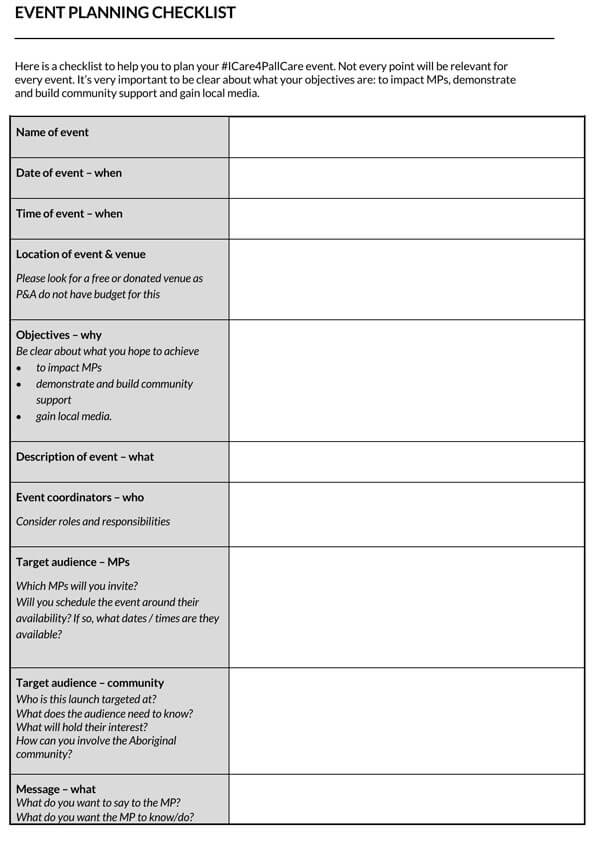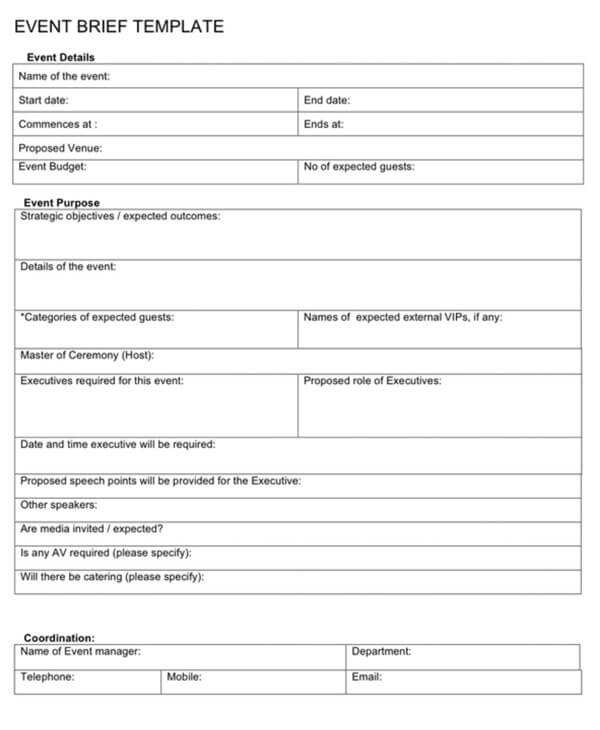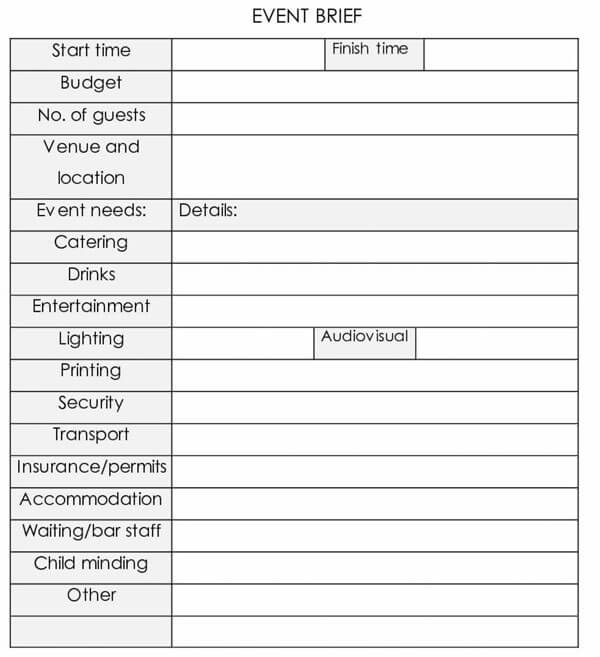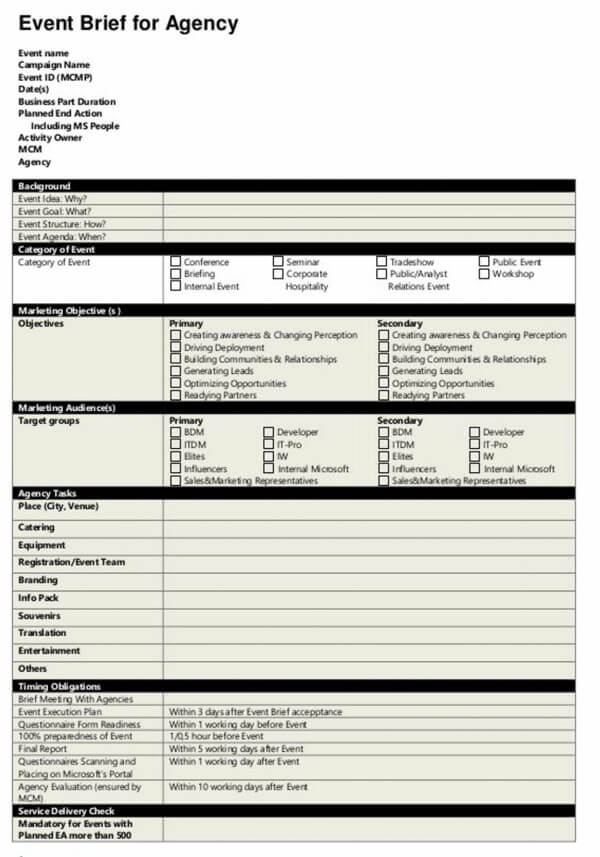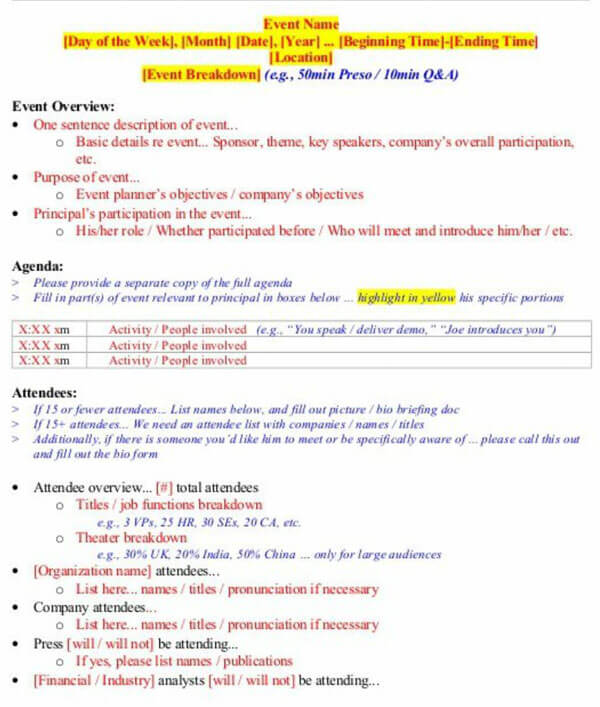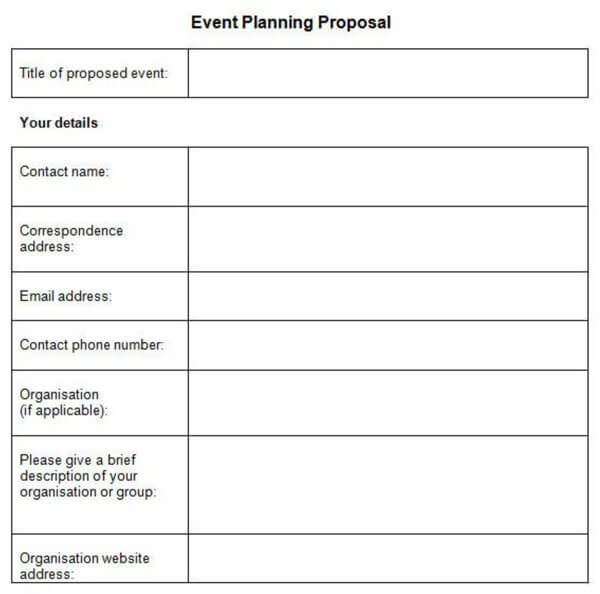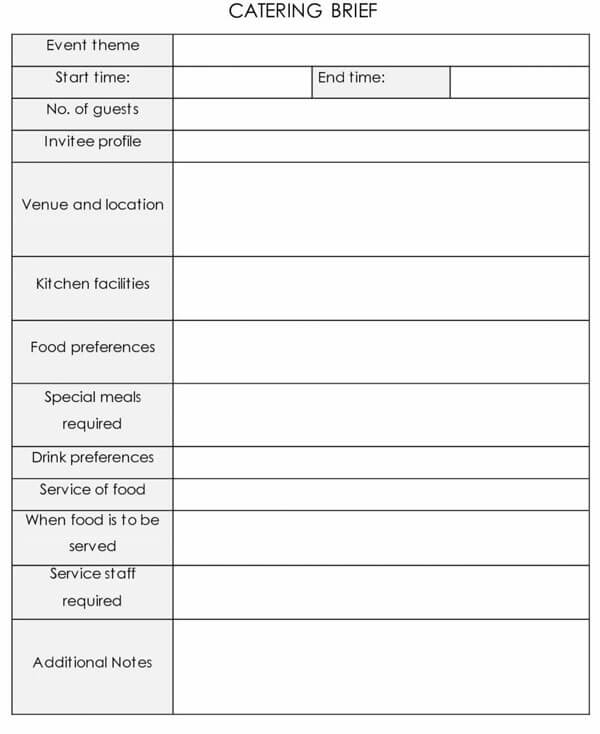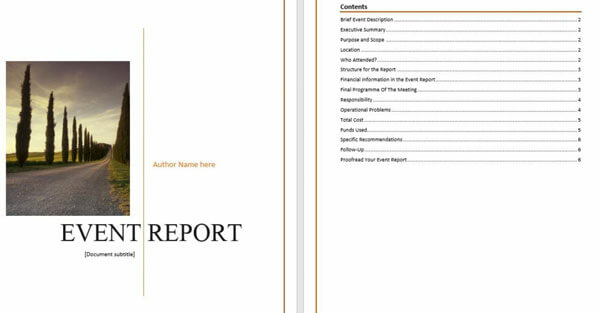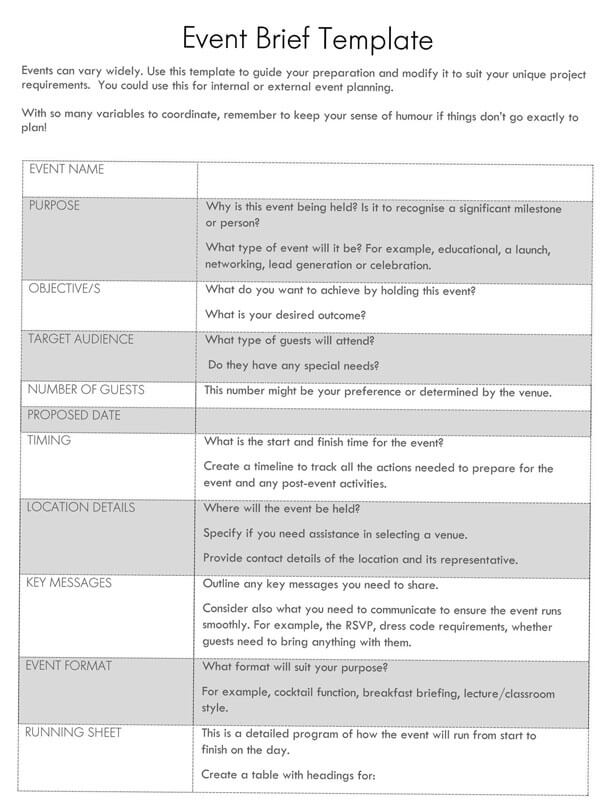An event brief helps you create an inclusive overview of an event you plan to run. It helps you know what needs to be done before the event, what stakeholders are involved, your budget, and how you track the progress, you are making towards achieving your goals. Generally, writing an event brief is the primary step in securing vendors and introducing them to your event. Having a great proposal allows you to acquire all you need for the event and keep in line and budget.
What is an Event Brief?
An event brief guide is a comprehensive outline or general idea of the event you plan to run. It is usually created before any practical arrangements are made and long before the event’s actual date. It includes any details of the event such as date, venue, budget, attendee information, limitations, and a general forecast of how the event will run.
Importance of an Event Brief
It takes a lot for one to run an event successfully, especially if it is a business event. One has to ensure that all details of the event are well captured and that everything is as it should since the businesses’ reputation is on the line. A well-planned event can help a business to generate money, clientele, and maintain loyal customers.
An event brief makes the whole process of planning complex events easier and very efficient. It is important to work using an event brief, whether while working with an agency or an in-house events coordinator, as it is the only way the whole team will be on the same page regarding a particular event. In simpler terms, an event brief allows you to have clear goals, lay out a realistic timeline, stay on budget, create a guest list profile, and ensure your venue is a presentation and feel of what you envisioned.
How to Write an Event Brief
An event brief serves as a basis or foundation for your event. The following steps will guide you through planning and executing a successful event.
Describe the event
Give a clear, concise, and detailed description of the event to your events team or agency to provide them with a clear picture of who you are and what you are planning to achieve. Have these questions in mind;
- What does the event look like and feel?
- Who are your attendees, and what is their profile?
- What is the theme?
- Clarify your goals?
Organizing an event is costly and time-consuming. Therefore, make sure you tie your event to a realistic and achievable goal. Based on your event’s objective, the design agency or team will come up with different solutions about the layout, look, theme, and feel of the proposed event.
Layout a budget and a timeline for your event
Ask yourself how much you expect to spend per attendee in terms of food and drinks, the kind of and location of the venue you will be renting, whether or not you will need staff on site, and how much income is expected from the event. Plan your budget around the expected profit income.
Once you have a rough idea about your budget, plan a timeline, and get a date for the event. Remember to identify some other important milestones along the way, such as getting your venue secured at least two months before the event or selecting a caterer some weeks before the event’s actual day.
Profile your attendees
Include a detailed profile for your attendees to ensure you have everything ready and to perfection. For example, a typical company end-of-business year party will feel and look different from an Executive dinner for a company’s stakeholders.
Include a look and feel guide
Although your event planners will determine how the event feels and looks, it is important to include guidance of how you want the whole event to be and feel. This will ensure that the event is completed on time, within your budget, and exactly how you imagined it to be.
Important Tips for Successful Event Brief
Outside of the three basics (date, venue, and type of event) of writing an event brief, there are major tips to include to enable you to create a thorough and accurate proposal for your vendors. These include:
Company profile
Regardless of how big or small your company is, including your company profile in your event brief is very crucial. Your company profile gives your vendors an overview of who you are and evaluate whether or not you both believe in the same goals. Additionally, it gives all your vendor’s insight into your company and event, which ultimately enables them to anticipate certain solutions to fit your organization’s demands.
Detailed event information
Be sure to include all the information that you feel will be beneficial to your vendors while planning the event. Avoid leaving out details as this will only cause surprises in the end, which may make your event unsuccessful.
Have a clear budget
Be very specific about your budget and talk about your expectations with your vendors from the beginning. This saves you headaches at the end of the day and the possibility of a budget that is wildly out of control. Without a clear budget specification, your vendors will not be able to find your solutions to get the most out of your money. Thus, it is important to be upfront about your budget and expectations so that your vendors know how to effectively plan your event.
Timeline
Include a timeline for event brief questions, responses, due dates, and decisions on who will be awarded the business. Allowing your vendors plenty of time to read, ask questions, and collectively respond to you helps them get the most accurate information about the event and how to go about it.
Download Event Brief Templates
Generate an inclusive overview of an event you are planning to host using our event brief templates. Our thorough templates will guide your planning process and provide an outline of tasks to accomplish during an event. Download our event planner templates today and customize them to meet your business or company needs quickly and with ease.
Key Elements for a Successful Event Planning
Almost all types of events require proper planning and a process to accomplish your organizational goal. The following key essentials of event planning will help make your event successful:
Understand the purpose of the event
Each event should have a key goal, objectives, and the purpose of determining the event’s success rate. Understanding the resolution of the event allows for better planning and provision of budget and time.
Know your audience
Based on your company’s objective, classify your target audience and their demands. Once you have established your target audience, determine where to find them, and how you can easily reach them.
Select the right venue
Pick the right venue based on the kind of event you want to host and your target audience. Make sure there is a clear link between your organization’s expectations of the event, theselected venue, and the audience being targeted.
Suitable timing
Right timing crucial while organizing a successful event. Consider factors such as days of a week, months, holidays, or other major events in the calendar, type of event, the location of the event, among other local factors.
Come up with a plan and follow the timeline
At this stage, you already have a specific goal, and you already know your target audience. Create a plan to implement the tasks and achieve the desired goal based on the event’s size and complexity. Remember, early planning allows you time to understand every element of the event, its demands as well as necessary action plans. In addition to early planning, determine the key milestones and targets before you begin
Create great content that will attract your target audience
Be creative while creating the content of your event to keep your audience engaged and glued to your event. Serve them with information that they want to solve their problems and add value to their life, rather than just basic sales pitches for your business.
Write the message you want to share through the event
The message of your event should be one that helps them to understand your organization, its impact on society, and its contributions. Designing a message like this makes the attendees trust your organization.
Lead capture mechanism
Commonly, the primary aim for B2B events is establishing leads of potential prospects. Think of clever methods that you feel will work for you and help you achieve value from your events.
Conclusion
Drafting event briefs can be quite tiring and hectic, but when done accurately with as much relevant information as possible, you will be pleasantly surprised with the quality and accurate proposals you will attract from your potential vendors in return. Event briefs are useful anytime you are planning and executing any event, especially when collaborating with cross-functional teams while planning for an event.
